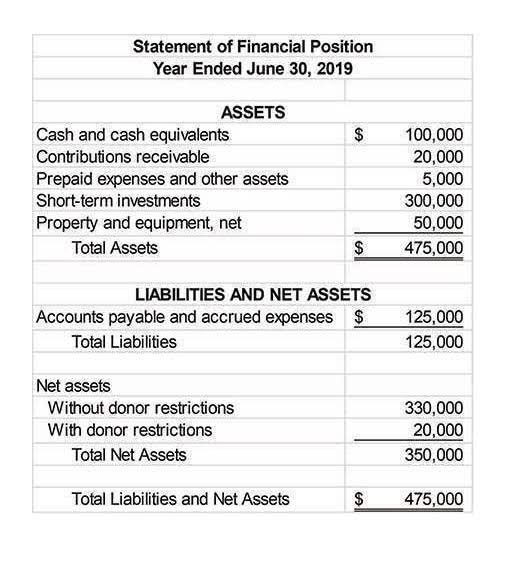
In contrast, a large corporation might employ a team of bookkeepers who focus solely on recording transactions across different departments. Meanwhile, their accountants analyze these entries to provide strategic advice to management, help in budgeting and financial forecasting, and ensure regulatory compliance on a larger scale. In conclusion, accounting and auditing are two distinct fields that have different roles and responsibilities. While accounting deals with the collection and processing of financial data, auditing provides independent verification of the accuracy and reliability of that data. Both fields are important for managing financial risk and providing accurate financial information to stakeholders. Auditing, on the other hand, is an independent examination of financial statements to ensure that they are accurate and comply with accounting standards and regulations.

Difference Between Bookkeeper And Accountant
Bookkeeping records daily financial transactions, while accounting interprets and analyzes that data is bookkeeping in demand to create reports, file taxes, and guide decisions. Bookkeeping and accounting are sometimes used interchangeably—but there are distinct differences between these roles. From required education to day-to-day responsibilities, let’s compare bookkeepers vs. accountants. While accounting is similar to bookkeeping in that it involves documenting business financial transactions, the former process is more in-depth. It facilitates basic bookkeeping tasks, such as invoicing and expense tracking, but it also offers accounting functions including financial reporting, payroll and tax management.
Key Differences Between Bookkeeping and Accounting
Aside from needing a professional degree in accounting, they also need relevant work experience. Some business owners hire the same person to handle both their personal and business finances. While this may help save costs – you’d only have to hire one professional to balance both books as opposed to multiple – it can become problematic. Some may have a proven track record in documenting personal finances but no experience handling substantial corporate accounts. Neither bookkeepers nor accountants are technically required to obtain a CPA certification or Master’s degree, but it is much more common for accountants to do so https://www.bookstime.com/ as many companies prefer it. Accountants are expected to have a Bachelor’s degree at a minimum – whereas bookkeepers don’t even need a college degree.
When to Hire a Bookkeeper or Accountant
To hire an accountant who can offer financial forecasting and tax services, look for a certified public accountant (CPA). A CPA is licensed by a state board, has passed a standard exam and has to meet ethical and character requirements in their work. Bookkeeping and accounting are both vital tasks in a business—but they aren’t interchangeable. Here are the key differences between bookkeepers and accountants and how to decide when to hire each for your business. A bookkeeper keeps records accurate; an accountant provides insights for growth and compliance. Bookkeepers focus on recording daily transactions, while accountants analyze data to guide decisions.

Create a chart of accounts
Bookkeeping tracks all incoming and outgoing cash, helping you monitor your cash flow. By recording each transaction, you can see if your business is bringing in more than it’s spending. Typically, small business owners start with bookkeeping by taking on basic tasks or hiring a bookkeeping professional.
The primary objective of bookkeeping is to maintain accurate financial records for future reference and accounting purposes. In conclusion, accounting is a critical function in any organization, and it involves the recording, classifying, and summarizing of financial transactions. GAAP provides guidelines and standards for financial reporting, and audits are conducted to ensure compliance with these standards. It QuickBooks ProAdvisor involves tracking and organizing your daily transactions to ensure your financial records are accurate and up-to-date. A skilled bookkeeper helps maintain the financial data that you will use to make important business decisions. For business leaders wondering about the difference between Bookkeeping vs Accounting, the answer lies in the impact on overall business operations.
- Accurate financial records are essential for making informed business decisions and improving the financial health of a company.
- Travel requirements can differ significantly between engineering and accounting.
- Bookkeeping is ideal for people who prefer a straightforward role with a good work-life balance.
- Cloud-based systems like QuickBooks Online and Xero automatically categorize transactions and generate real-time reports.

In particular, the big four firms of Ernst & Young, Deloitte, KPMG, and PricewaterhouseCoopers offer larger salaries than mid-size and small firms. Therefore, those who do not like math, get confused easily when making simple calculations, or are generally opposed to number crunching should not apply. She holds a Bachelor of Science in Finance degree from Bridgewater State University and helps develop content strategies.

Company
- They complete at least a bachelor’s degree in accounting, pass the rigorous CPA exam, and maintain ongoing professional education to stay current with tax laws and accounting standards.
- This skill involves reviewing financial data to understand trends, such as revenue growth or expense patterns.
- In Accounting will teach you accounting best practices, industry-standard software, and financial analysis skills that will set you up for success.
- Engineering is a field that encompasses the application of scientific and mathematical principles to design and create solutions that meet societal needs.
- For a long-term career, accounting offers much more upward mobility and income potential.
- We deliver exceptional consumer experiences across Arizona, Colorado, and New Mexico, offering accounting services, construction, and digital strategy.
It made me a little bit strange compared to some of my colleagues, but really, it makes me stand out. So, if you have a weird background for whatever industry you’re in, figure out how it helps you and take advantage of it. And actually, engineering math is way harder than anything we do in accounting math. In accounting, we maybe multiply by a percentage once in a while or have to do a ratio.
